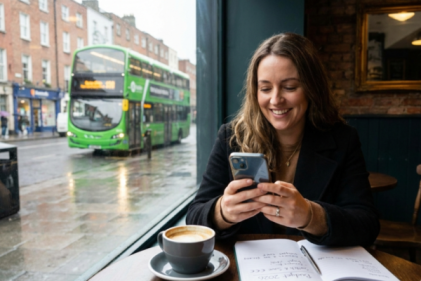While there has been lots of positive progress for children in Ireland over the last ten years, there are still a number of very serious problems remaining, particularly homelessness and lack of support for homeless children. These problems along with many others will be raised in Geneva today, Thursday, 14th January, along with the solutions needed to address them.
It has been ten years since Ireland was last reviewed by the UN Committee on the Rights of the Child, and today’s examination will be carried out by a group of 18 independent experts elected by Members of the UN who meet three times a year in Geneva.
1. Homeless children:
Along with tackling poverty, asylum-seeking and Traveller children, the committee will focus on homelessness, which they believe is linked to the soaring child poverty rate that Ireland is facing. In fact, as of October, there are 1,638 homeless children - a figure that has risen by 90% during 2015, and children now account for almost one-third of the homeless population.
These children are living in inappropriate emergency accommodation such as hotel rooms, for up to 18 months raising child protection and welfare concerns.
What are the solutions?
- The committee wants a child protection and welfare review of emergency accommodation provided to families
- A minimum standard for accommodation provided to families to be put in place
- To explore the introduction of legislation to prohibit the placement of families in inappropriate emergency accommodation, including hotel rooms
- To limit the time spent in emergency accommodation
Other issues to be tackled:
2. Children’s mental health:
Ieeland has the highest EU rate of youth suicide amongst girls and the second highest rate amongst boys, and tackling children’s mental health is one of the most important issues that the committee will focus on.
Sadly, our mental health services are in crisis – 2,309 children are on a waiting list for an appointment, of whom 1,319 have been waiting for longer than three months and 214 have been waiting for more than a year.
In addition, almost a quarter of children admitted to mental health facilities in 2015 were inappropriately admitted to adult in-patient units (figures from January to September 2015).
What are the solutions?
- The committee want to end the practice of treating children in adult mental health units other than in exceptional circumstances where it would be in the best interests of the child to do so
- They also want to address the waiting lists for children and adolescent mental health services (CAMHS)
- To establish an independent advocacy service for children experiencing mental health difficulties
3. What about education?
Shockingly, a person’s socio-economic background remains a strong determining factor in their educational attainment. Children often have no voice in grievance procedures in schools and the lack of choice in education remains problematic.
But what are the solutions?
- The committee travelling to Geneva want to develop a national strategy on educational disadvantage, with a particular focus on Traveller and Roma children, migrant children, early school leavers and children with special educational needs, including Deaf children
- They also want to address the cost of education to parents
- Establish a formal Grievance Procedure in schools - children should be permitted to make complaints in their own right, through the available mechanisms
- Develop Community Diversity Guidelines for schools on how to create a pluralistic environment for children of all faiths and none
- Create a national network of schools that guarantee equality of access to children irrespective of their religious or non-religious beliefs
4. Supports for vulnerable children and families
Inadequate services continue to leave vulnerable children and families unsupported, and children are routinely denied access to safety.
In one year alone, women and children experiencing domestic violence were denied access to refuges on 3,500 occasions.
What’s needed?
- Ratify the Optional Protocol on the Sale of Children, Child Pornography and Child Prostitution - Ireland is the only EU country that has not ratified this Protocol
- Undertake a review of services to identify ways to better support children with emotional or behavioural difficulties
- Address the shortage of domestic violence refuge accommodation for parents and children
- Introduce legislation to strengthen our laws on child protection, along the lines of the Criminal Law (Sexual Offences) Bill 2015
- Introduce legislation to provide a framework for family reunification for migrant children and their families
5. Child victims of crime and abuse
Supports for child victims of abuse, neglect and other crimes have, in many cases, been inadequate. Shockingly, child victims experience delays of up to 18 months in obtaining counselling support, which is completely intolerable.
What’s needed?
- Enact legislation to provide for the rights of victims of crime and ensure compliance with the EU Directive on Victims
- Address waiting lists for victims of abuse to access therapeutic supports
- Conduct a review of how the Garda Síochána, Director of Public Prosecutions, courts and health services respond to the needs of child victims
- Ensure additional resources needed to make a prompt, appropriate and comprehensive response to the needs of child victims are made available
The Children’s Rights Alliance is leading a delegation of up to 20 of their member organisations including Barnardos, ISPCC, Pavee Point, Mental Health Reform, St. Patrick’s Mental Health Services, EQUATE: Equality in Education, Immigrant Council of Ireland and the Irish Refugee Council in Geneva.











